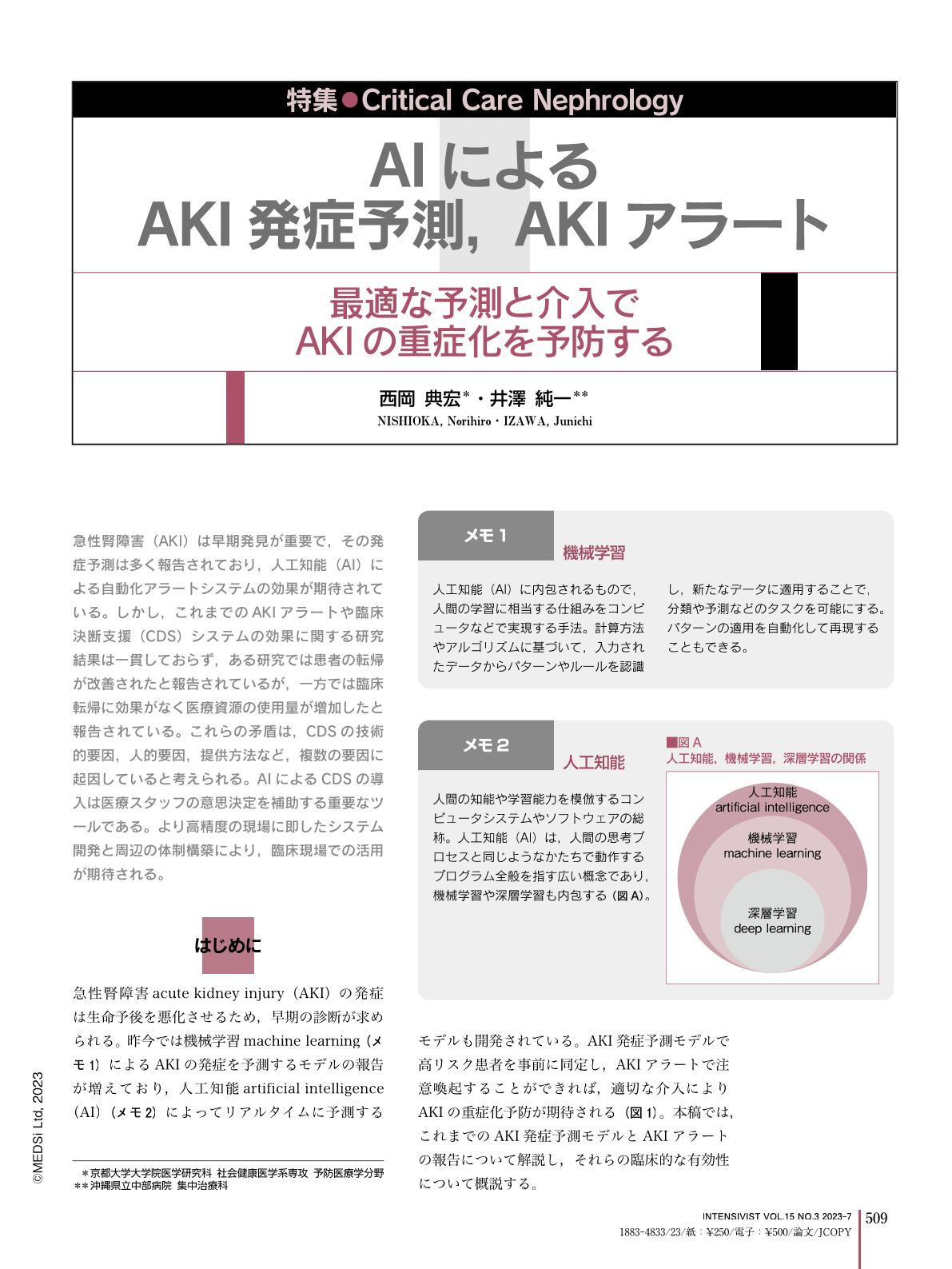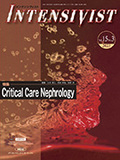Japanese
English
- 有料閲覧
- Abstract 文献概要
- 1ページ目 Look Inside
- 参考文献 Reference
急性腎障害(AKI)は早期発見が重要で,その発症予測は多く報告されており,人工知能(AI)による自動化アラートシステムの効果が期待されている。しかし,これまでのAKIアラートや臨床決断支援(CDS)システムの効果に関する研究結果は一貫しておらず,ある研究では患者の転帰が改善されたと報告されているが,一方では臨床転帰に効果がなく医療資源の使用量が増加したと報告されている。これらの矛盾は,CDSの技術的要因,人的要因,提供方法など,複数の要因に起因していると考えられる。AIによるCDSの導入は医療スタッフの意思決定を補助する重要なツールである。より高精度の現場に即したシステム開発と周辺の体制構築により,臨床現場での活用が期待される。
The early detection of acute kidney injury (AKI) is crucial, and several artificial intelligence prediction models have been reported;however, some lack quality despite their potential practicality. The implementation of automated alert systems is expected to be effective. Nonetheless, previous research on AKI alerts and clinical decision support (CDS) systems has produced inconsistent findings. While certain studies have shown improved patient outcomes, others found that there was no impact on clinical results and that the use of CDS systems increased healthcare resource utilization. These discrepancies arise from various factors, including the three components of CDS:technology, human factors, and delivery methods. Additionally, conducting clinical studies to validate systems like AKI-Alert poses significant challenges. The introduction of AI-based CDS serves as a valuable tool for assisting healthcare professionals in decision-making, with the potential for improved practical applications in clinical settings through the development of more accurate, context-specific systems and the establishment of supportive frameworks.

Copyright © 2023, MEDICAL SCIENCES INTERNATIONAL, LTD. All rights reserved.


